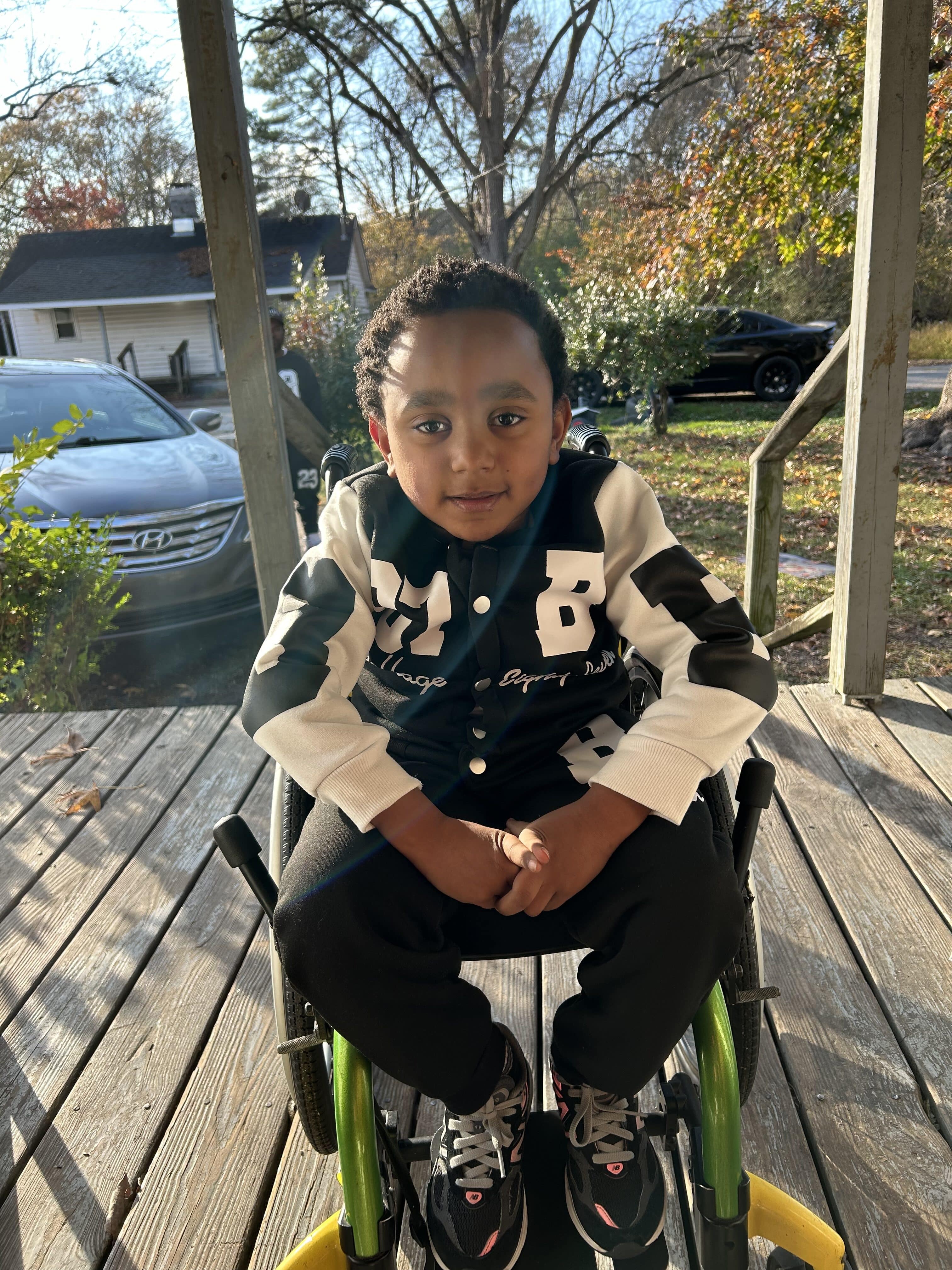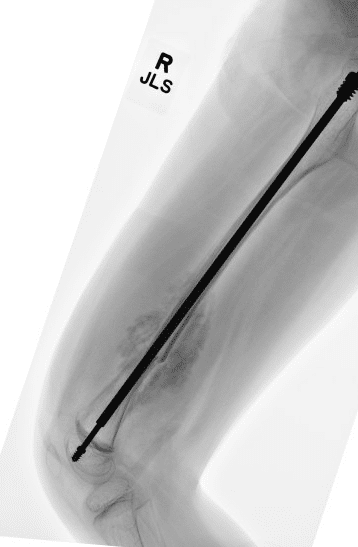Joshua Thomas, a lively and spirited seven-year-old, has never let his severe form of Osteogenesis Imperfecta (OI), commonly known as brittle bone disease, dampen his spirit or excitement for life.
“Joshua is full of life,” said his mother, Shakeema Thomas. “Even with everything he’s been through, he’s very active.”
Brittle bone disease is rare, impacting about 25,000 to 50,000 people in the United States, according to the National Institute of Health. The genetic disorder means Joshua’s bones are fragile and prone to frequent fractures. Over the years, Joshua has experienced a series of challenges, including approximately ten femur fractures, often from falling or seemingly harmless movements like repositioning in bed.
According to Shakeema, Joshua has broken the same femur bone about ten times. When Joshua sustained yet another displaced femur fracture, his family turned to Dr. Michael Firtha, a pediatric orthopedic surgeon at ECU Health who has treated both Joshua and his fifteen-year-old brother—who also has OI—for multiple fractures over the years.
“Displaced femur fractures in kids with osteogenesis imperfecta are difficult problems with limited options,” said Dr. Firtha. “You have to consider fixing the bone, allowing continued growth and preventing future fractures in the same area.”

In the past, Joshua’s treatment included body and leg casts, but these approaches didn’t prevent recurring injuries. Determined to find a solution that worked better for Joshua, Dr. Firtha surgically implanted a telescoping metal rod, a procedure that was first-of-its-kind at ECU Health.
This innovative implant stabilizes the fractured bone while allowing it to grow naturally. As Joshua’s femur lengthens, the rod telescopes along with it, providing long-term protection without hindering development.

“This technology is a game-changer,” Dr. Firtha said. “It lets us fix the bone, promote healing and ensure Joshua’s growth isn’t compromised. I’m fortunate to work in a health system that prioritizes patient outcomes and embraces advanced technologies.”
The results have been transformative. Since the surgery, Joshua has had a few minor falls that would have previously resulted in fractures but did not this time. For Shakeema, the change is nothing short of remarkable.
“We’re so grateful for the care Joshua has received, and Dr. Firtha is so amazing,” Shakeema shared. “He’s doing well so far, and he’s completing physical therapy now every day to get stronger.”
Joshua’s story is a testament to the importance of advanced techniques and technologies that improve the quality of life to patients with rare and challenging conditions. To learn more about ECU Health Orthopedics, please visit ECUHealth.org/ortho.